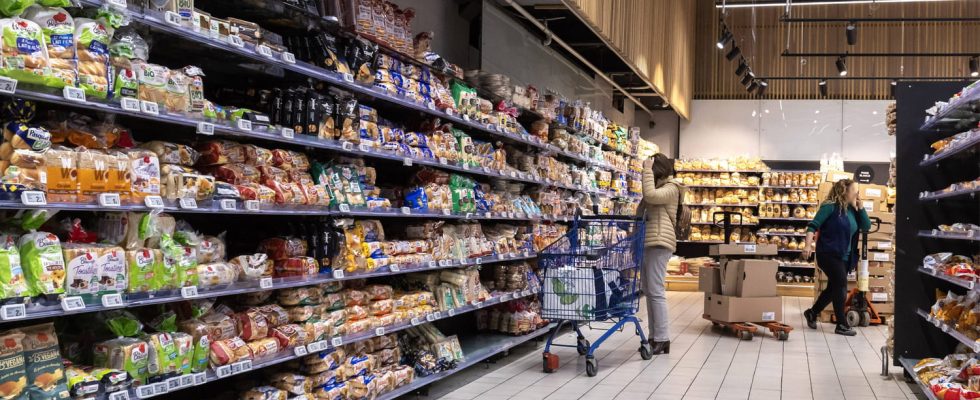In supermarkets, the phenomenon of “cheapflation” is spreading and it is to the detriment of the consumer.
Inflation is causing great harm to French households and particularly affects them when doing their shopping. Although it is no longer as strong as before, the rise in food prices has changed the habits of consumers, but also of manufacturers: a new practice designed to make more profits at the expense of customers has also been identified. Coming from the United States, “cheapflation” is wreaking havoc.
Foodwatch has decided to open an investigation into this phenomenon which corresponds to an overall decline in product quality. Born from the contraction of the English word “cheap” and inflation, it describes the deterioration in the quality of an item as well as, at the same time, the increase in its price. In practice, this consists of reducing or even eliminating an ingredient to replace it with another less expensive and lower quality ingredient. Done well, this change is almost imperceptible on the list of ingredients on the product packaging.
The consumer association gives examples of products on which such a scam has been carried out. Fleury Michon is singled out for the recipe for these fish sticks: the quantity of fish meat has fallen by 11% since the start of inflation while the price of the product has jumped by 40% at Auchan according to Foodwatch. Even the packaging would be misleading. Fleury Michon put forward “a new recipe” without preservatives or artificial flavors which in reality were already non-existent, adds the report.
Another well-known product: Bordeau Chesnel rillettes. The quantity of meat between 2021 and 2024 would have decreased by 5.5% according to Foodwatch. The duck fat would have been replaced by vegetable oils and the meat would no longer be French. However, the price per kilo has increased by 31% at U for example, indicates the association. It also targets Milka cookies which would have seen sunflower oil replaced by the controversial palm oil, which is much less expensive. The price per kilo still increased by 27% at Casino.
Manufacturers try to justify such processes by increasing the prices of raw materials. A response which did not convince Foodwatch which assured that this phenomenon dates back to 2016, well before the inflationary crisis. And “cheapflation” is not the only one that harms the purchasing power of the French. “Shrinkflation”, better known, consists of reducing the size and therefore the quantity of certain products without changing the price, or even increasing it. Foodwatch previously compiled a basket of six products whose weight had decreased by 12% while the price had increased by 25%.
These practices, which resemble scams, are not illegal. The regulations do not prevent changing ingredients or reducing the size of a product, it simply indicates that the consumer must not be “misled”, like the Ouest-France report. Manufacturers are free to report changes in any way they wish.
How not to be fooled? Reading labels carefully can be quite helpful. Certain low percentages on more expensive products such as meat or fish for example can alert you, as can the presence of ingredients such as glucose syrup which can replace sugar.
